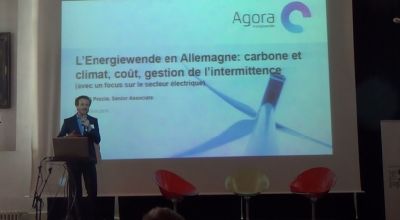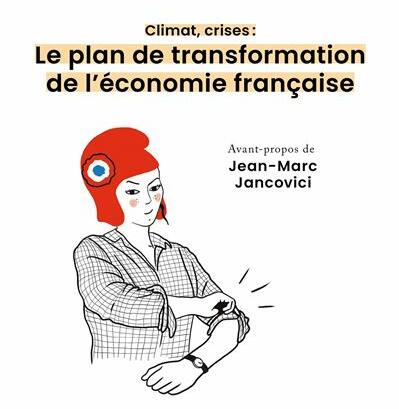 Dimitri Pescia is in charge of the European Energy cooperation at the european think-tank Agora Energiwende, which works closely with the german governments since its creation in 2011. Before that, he worked for the Department of Economic Affairs – international network of the French Treasury – at the French Embassy of Berlin, on Energy and raw materials.
Dimitri Pescia is in charge of the European Energy cooperation at the european think-tank Agora Energiwende, which works closely with the german governments since its creation in 2011. Before that, he worked for the Department of Economic Affairs – international network of the French Treasury – at the French Embassy of Berlin, on Energy and raw materials.
Dimitri presented the energy transition in Germany with a focus on the power sector and fundamental change by the massive introduction of wind power and photovoltaics. He explained the objectives of the German energy transition which he described as multisectoral.
Four political objectives were identified: climate, nuclear exit, competitiveness and energy security. Two other strategic objectives for their implementation have to be added: the development of renewable energy and the reduction of primary energy consumption. This proactive policy has enabled Germany to become a net exporter of electricity, and to be on course for a total replacement of nuclear by renewables, with the planned shutdown of the last reactor in 2022. But the stagnation of the share of coal and therefore of the CO2 emissions at least for the near future is another consequence of the choice taken by Germany.
After his presentation, Dimitri was joined by Erik Pharabod, Director of Information and Transparency at RTE. The discussion, moderated by Cédric Ringenbach, director of the Shift Project, focused on the energy transition in both German and French contexts. It was an opportunity for the audience to step in and discuss topics such as the current and future place of coal in the German energy system, the issue of energy storage or the ability of renewable energy to take nuclear power’s place in France.

